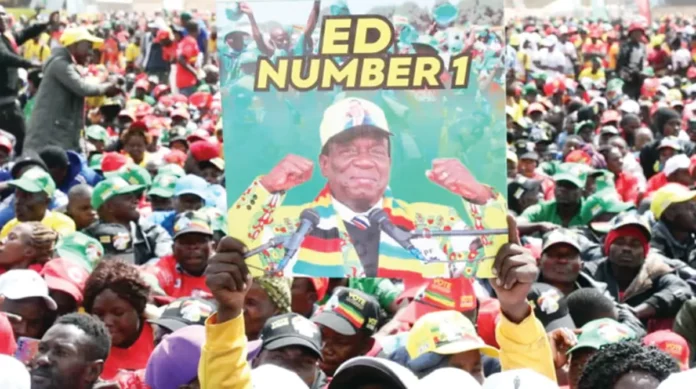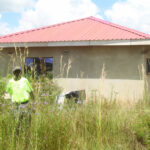A controversial move by Zanu PF structures in Manicaland province is reigniting debate about presidential term limits in Zimbabwe. The party’s call for President Emmerson Mnangagwa to remain in office beyond 2030 – effectively a lifelong presidency – echoes the controversial actions of the late Robert Mugabe’s era and has drawn sharp criticism.
The demand, revealed at a Chimanimani inter-district meeting in Biriri over the weekend, was made by senior party officials, including Zanu PF Manicaland provincial chairperson Tawanda Mukodza, provincial youth chairperson Stanley Sakupwanya, Chimanimani district development co-ordinating committee chairperson Brighton Muchuwa, Chimanimani West legislator Wilson Maphosa, and Chimanimani East MP Joshua Sacco (also a politburo member). Sacco was the guest of honour at the meeting.
Addressing hundreds of Zanu PF supporters, Muchuwa explicitly stated their position: “We follow where there is power and President Emmerson Mnangagwa has power and we are loyal to him. One day I was in office with my chairperson Tawanda Mukodza and it was clear to me that in life if you have loyalty you won’t have problems. As a district we are saying that we are behind President Emmerson Mnangagwa and we resolved that he should go beyond 2030.”
Mukodza reinforced this stance, referencing the party’s annual conference in Bulawayo last year where a resolution was adopted to extend Mnangagwa’s term to 2030: “We are not going back on the President Emmerson Mnangagwa 2030 issue. We had a provincial inter-district, we went to the central committee and we went to a conference and agreed that our president should remain until 2030 and we need to implement that to happen.
“I heard that there are some people who are questioning in villages about the resolutions made in Bulawayo, comrades. This is what we agreed as Zanu PF and we don’t want people who come here and divide the party and the district.”
The move is not without precedent. It recalls the attempts during Mugabe’s long reign to secure his position indefinitely, a strategy that ultimately contributed to his downfall in the November 2017 coup. Some of Mugabe’s loyalists who supported these efforts were subsequently forced to leave the country. Currently, Zanu PF is experiencing internal conflict over plans to extend Mnangagwa’s term, with the 2030 resolution facing resistance within the party. President Mnangagwa himself has publicly stated his intention to retire at the end of his constitutionally mandated two terms in 2028, contradicting the Manicaland province’s demands.
Mukodza’s comments further reveal the strong-arm tactics being employed to enforce the 2030 agenda. He issued a thinly veiled threat against those expressing dissent: “There are some individuals who have gone out of the way even saying bad things about the presidium, we don’t allow indiscipline in the party, we are going to deal with them and we are very serious.”
Reports suggest that structures perceived as unsupportive of the resolution are facing intimidation and being denied access to crucial resources such as food aid and agricultural inputs. This highlights the internal power struggles within Zanu PF and the lengths to which some are willing to go to maintain their positions.
The Manicaland declaration underscores the deep divisions within the ruling party and raises serious concerns about the future of democratic processes in Zimbabwe. The push for Mnangagwa to remain in power beyond 2030 is a significant development with far-reaching implications for the country’s political landscape.















